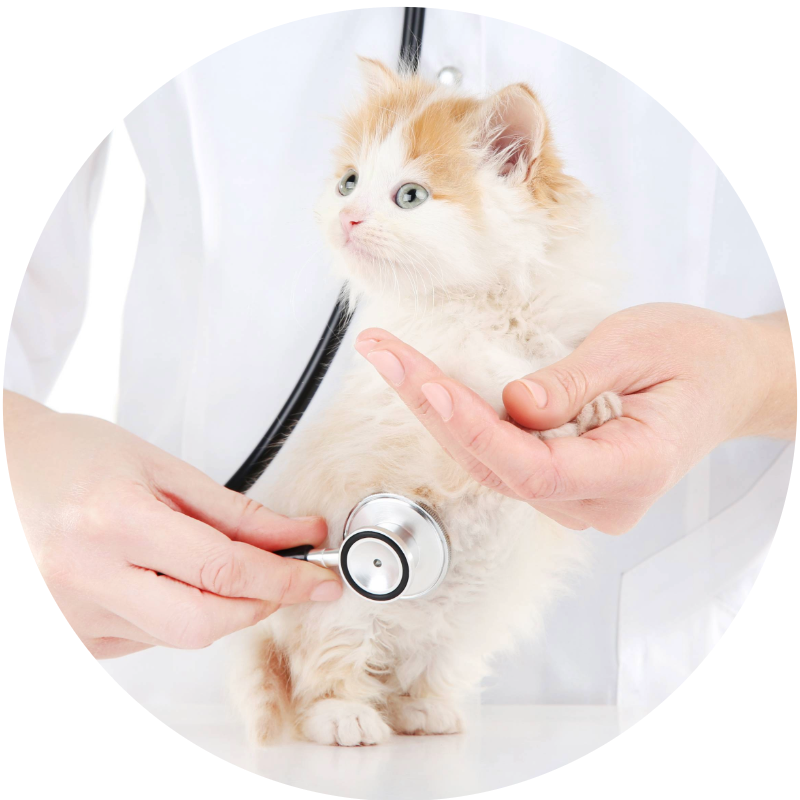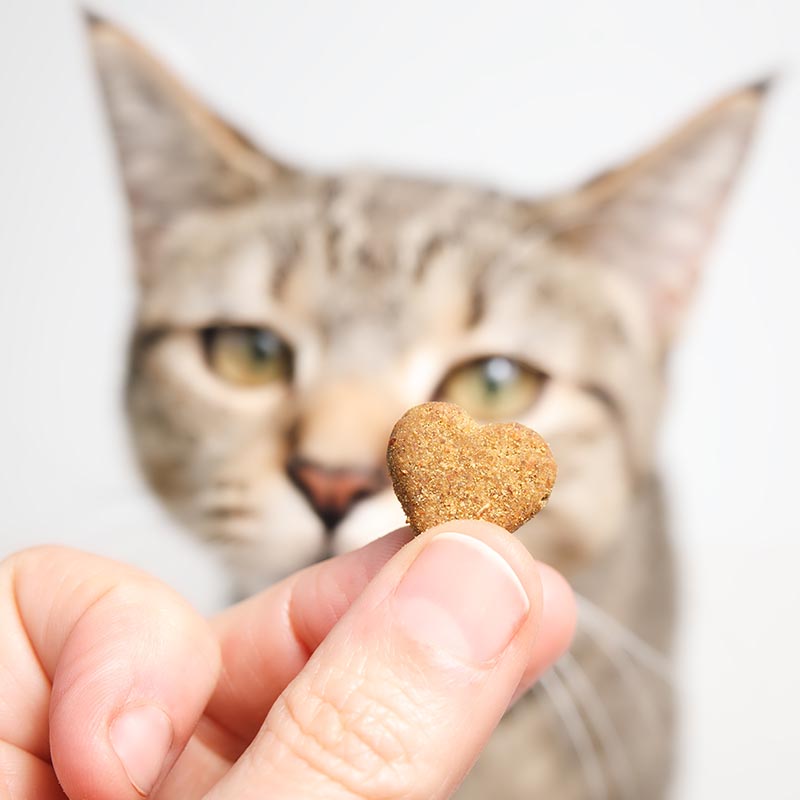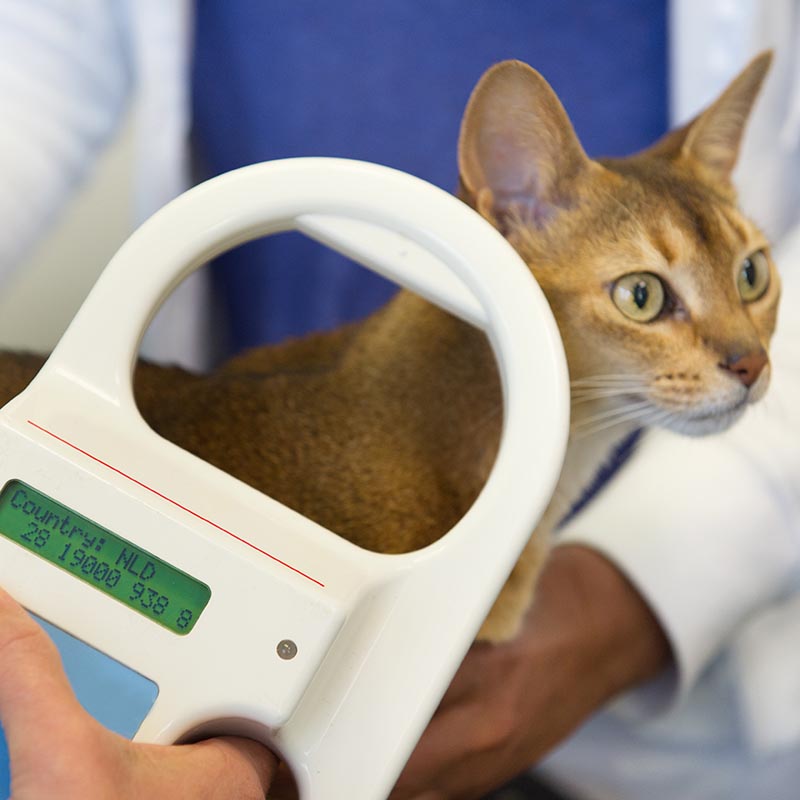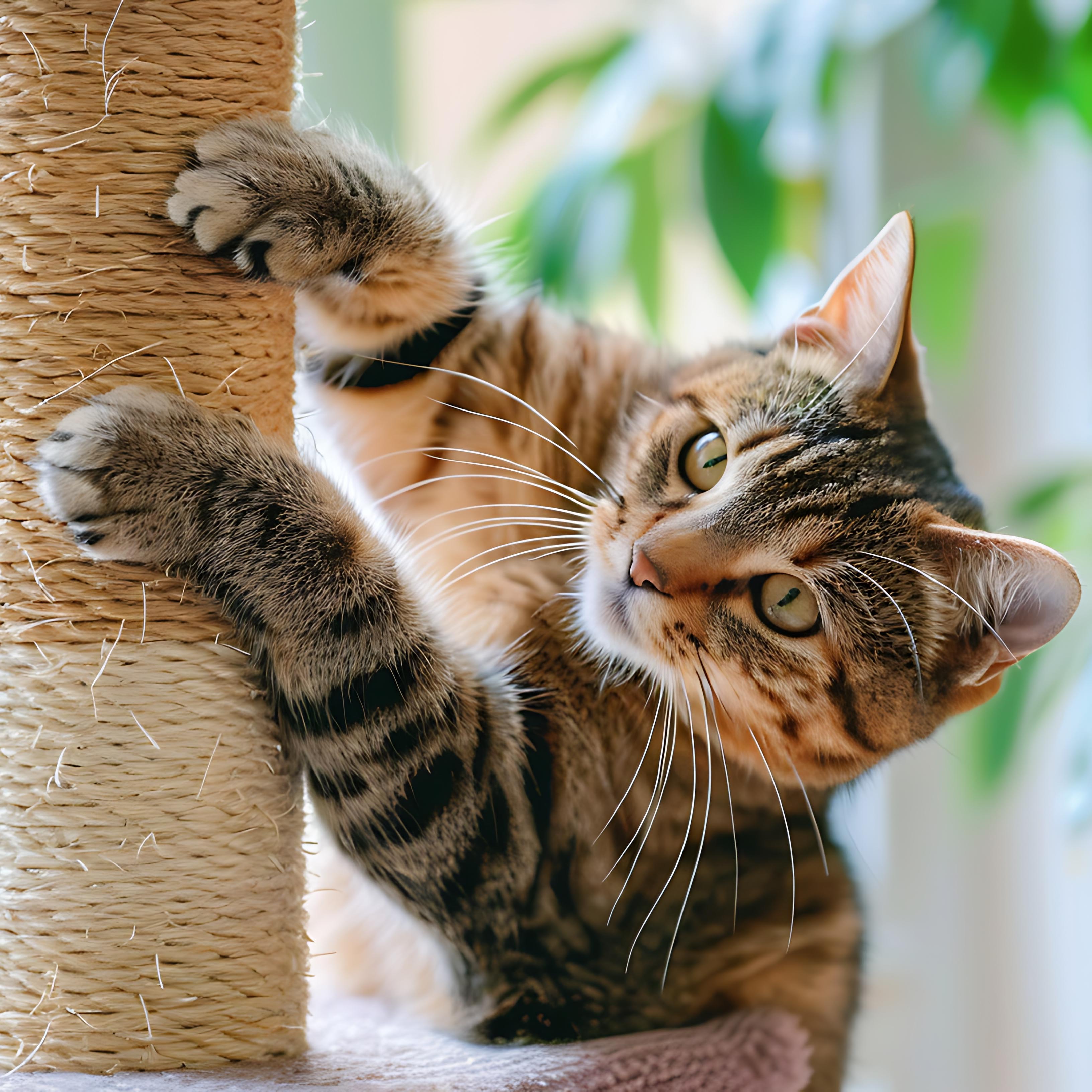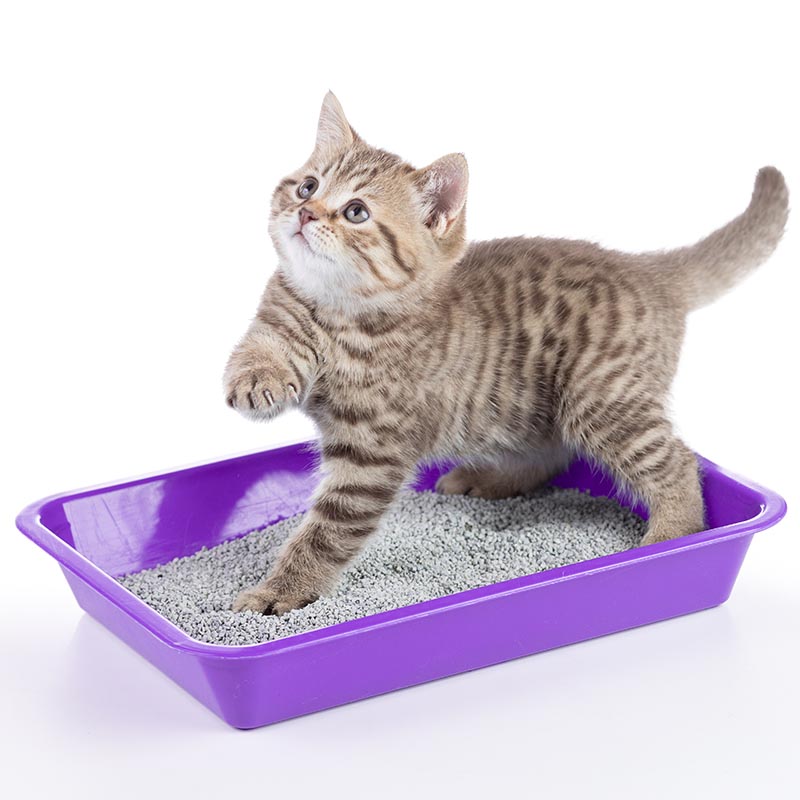Kitten Care
At St Ives Veterinary Hospital, we love being introduced to new furry members of your family! When you bring your kitten in to see us for the first time, you will receive a “kitten pack” with some free goodies and a booklet with everything you need to know about taking care of your kitten.
The contents of this booklet can be found by clicking here.

Vaccinations
Regular vaccinations are essential to prevent your cat from contracting several life-threatening diseases.
An F3 vaccination will cover the three core diseases which are:
- Feline panleukopenia virus – causes fatal enteritis. It is spread by contact with infected faeces, nasal secretion and oral secretions. It can also be transmitted to a kitten during pregnancy.
- Feline rhinotracheitis – this is a herpes virus that causes upper respiratory tract disease in cats. It can also cause abortion and chronic (life-long) conjunctivitis and “dry-eye” (a lack of tear production). It is spread by contact with infected nasal and oral secretions. It can also be transmitted to a kitten during pregnancy.
- Feline Calicivirus – a flu-like virus that causes sneezing, runny eyes, mouth ulcers, loss of appetite, lethargy, high temperatures and joint pain. It can progress to pneumonia. It is spread via oral and nasal secretions.
Your kitten’s initial vaccine schedule should be:
- First vaccine: 6-8 weeks old
- Second vaccine: 10-12 weeks old
- Third vaccine: 14-16 weeks old
After the first three vaccinations, we recommend that your cat has a F3 vaccination every year.

Fleas
95% of fleas live in the environment, not on your cat. Therefore, if you only treat your cat for fleas and not your home, they will soon re-appear. Fleas can cause disease and are a serious annoyance to your cat. Some cats are allergic to flea saliva so even one bite will cause them to itch intensely. The easiest way to control fleas on your cat is with a spot-on treatment applied to the skin on the back of their neck.
All animals in the house should be treated for fleas. In addition, you will need to regularly treat your cat’s environment. This means regularly washing your cat’s bed in a hot cycle and using surface sprays and good vacuuming to control the environment (especially if you have carpet) periodically.
Ticks
Ticks are a serious problem in this part of Sydney. They cause loss of appetite, vomiting, difficulty breathing and paralysis starting in the hind legs. Just like with fleas, we recommend a spot-on treatment regularly to prevent and kill ticks.
No product is 100% effective at eliminating ticks, so your kitten’s fur & skin still needs to be checked regularly. If you find a tick it is best to remove it straight away or bring them straight to the vet to have it removed. If the head is left in, it may create a small raised itchy lump but will not continue to poison the cat. If your cat is showing no signs of toxicity (symptoms that we mentioned above) they should still be watched carefully for the next 24 hours as the toxin will continue to affect them.
Worming
Cats can be infected with roundworm, hookworm, and tapeworm. Large worm burdens can make your kitten very ill. They can also infect people.
When you first obtain your new kitten, they should be wormed:
- Immediately and then again ONE week later.
- Then every 2 weeks until they are 12 weeks old
- Then monthly until they are 6 months old.
- Our recommendation is to worm adult cats every 3 months.
Desexing
The council requires all cats to be desexed and registered by 4 months of age, after which a penalty fee applies. Un-desexed cats tend to wander, hence they are more often involved in cat fights and are more often hit by cars. Un-desexed males also tend to urine spray. Desexing your cat also prevents unwanted litters being born and the potential for an increase in the feral cat population. Desexing minimizes the risk of female cats developing mammary cancer later in life.
The surgery is routine, and your cat stays in hospital for the day. Most cats show very little effect from desexing and are back to normal within 1-2 days. Male cats usually don’t even require sutures, the procedure is that simple! Your vet will be more than happy to discuss all these details with you.
Microchipping & Registration
Microchipping and registering your cat is not only vital for reuniting lost cats with their owners, it is also a legal requirement in NSW!
If a pet is ever lost and is handed in at a veterinary clinic or animal shelter a microchip scanner is passed over the animal to reveal the unique code.
The vet or animal shelter can then refer to the database to identify the name, address and phone number of the owner, so they can be reunited.
A microchip is about the size of a grain of rice and is injected under your pet’s skin, usually on their back near the shoulders. Often breeders or rescue organizations will have already implanted a microchip in your pet before you take them home, but our vets will always double-check with a scanner if a microchip can be detected. If your pet is not yet microchipped, this can be done during a normal consultation at our clinic.
When a microchip is scanned (a completely painless process, just a little beep!), a unique 15-digit number appears. This number should link to the NSW Pet Registry database and contain the owner’s contact details. This statewide database is only accessible to vets and animal control council workers and your contact details will not be shared outside of these authorized people. Often, we find owners have been told by a breeder that their new pet has been microchipped, which is true, but without the crucial step of adding your details to the NSW Pet Registry, that microchip is useless.
There have been many improvements to the NSW Pet Registry over the years to make life easier for pet owners. You can now pay your pet registration fees online and change your address or contact details through the Service NSW website here!
Indoors vs Outdoors
Contrary to what you might have heard, cats who are kept exclusively indoors can live completely happy lives!
If provided with appropriate mental & physical enrichment (especially if they have another feline friend to play with), they will be at no additional risk to boredom, behavioural issues or obesity, and the risks that come with allowing your cat to roam outdoors are eliminated.
If you choose to allow your cat outside, we recommend keeping your new cat inside between dusk and dawn, as hunting nocturnally is a natural instinct for cats, regardless of their need for food. It is also a good idea to place a bell on your cat’s collar to help preserve our native wildlife from cat attacks.
Pet Insurance
At St Ives Veterinary Hospital we recommend pet insurance. This means that when you pet is sick they can get the care they need. The sooner you take out pet insurance the less likely there is going to be a pre-existing condition that will not be covered. Many companies offer a free trial.
Some important things you need to know when considering which company to insure your pet with:
- Pre-existing conditions are not covered for life.
- If you change pet insurance companies then all conditions your pet has had prior to the change become pre-existing, even though you were covered by a different insurer.
- Some policies have sub-limits, for example: whilst you may think you have $20,000
- coverage per year, you may only have $2000 for tick poisoning specifically.
- Some insurers reduce coverage or stop coverage altogether at a certain age.
Your kitten pack will contain a gap only brochure that has a QR code. This will take you to a “compare-the-market” site that enables you to see the differences between different insurers.
Grooming
It is important to start grooming your kitten from a young age so that they learn to tolerate brushing & having their feet & ears touched. When starting out, you should use a soft brush and gentle strokes along the body. Each session should only last a couple of minutes, increasing gradually. Try to speak in a soft voice and reward your kitten with treats and praise when it stands still. Be sure to check between your kitten’s toes and desensitize them to having their nails trimmed, as well as checking their ears regularly. Unless you have a specific breed that does require regular bathing (like our hairless friends the Sphynx), you should not need to bathe your kitten unless advised by your vet.
Toilet Training
Cats are naturally clean animals, so toilet training is generally not difficult. It is important to keep your kitten’s litter tray clean, emptying it of soiled litter. It should not be kept next to their food bowl, as this will discourage them from using it. If you have more than one cat in your home, make sure you have at least one litter tray per cat, ideally not too close together.
Cats also do not require privacy to do their business, so if your cat is not using the fancy enclosed litter tray, try switching to standard tray with no roof or door!
If you catch your kitten in the act of going to the toilet elsewhere in the house, pick them up and place them in their litter tray. If you don’t catch your kitten in the act, they will not understand what behaviour you are trying to correct. Be sure to check what you are cleaning up “accidents” with. Some cleaning products contain ammonia compounds; these smell like urine to your cat and will encourage it to keep messing in the house.
Nutrition
When your first take your kitten home, do not be alarmed if they are not eating immediately. It may take a day or so to settle in with the new surroundings. If possible, for the first few weeks feed exactly the same food that the kitten was fed by the breeder or as advised by the pet shop. Use the age guides on foods to determine which food is appropriate for your kitten.
Kittens have different nutrient and energy requirements to adult cats so should not be fed adult foods. Most cats are lactose intolerant; therefore, dairy products will give them diarrhoea. Once weaned, your kitten no longer requires milk in its diet. You can however give you cat lactose-free cat milk if you desire.
Kittens are most often ad-lib feeders – that is that they tend to graze, returning regularly to their food bowl throughout the day for one or two mouthfuls. If you wish to have set mealtimes for your cat, start with three meals a day, reducing to two meals at approximately 4-6 months of age. Avoid ad-lib feeding dry food to adult cats as this tends to lead to obesity. We stock Hills Science Diet kitten food – this diet is balanced nutritionally, which means they provide all the nutrition your cat will need.
In addition to diet, dental hygiene is just as important for your cat as it is for you! Talk with your veterinarian about the use of tooth brushing, dental treats, dental diets or dental water additives to keep their teeth and gums healthy.



